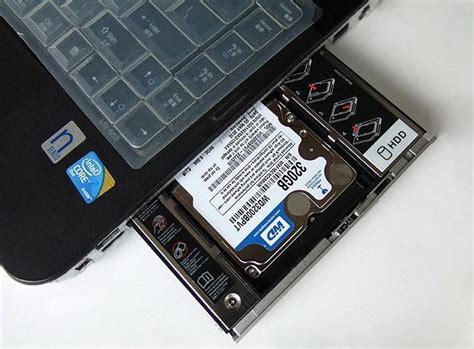Enhance Your Data Storage Capabilities with Advanced Hard Disk Slot Solutions
In the realm of data storage, hard disk slots serve as the cornerstone for expanding the capacity and performance of your storage systems. By incorporating additional hard drives, you can effortlessly augment your data storage and retrieval capabilities, ensuring seamless performance and data accessibility. This article will delve into the benefits, functionalities, and best practices associated with hard disk slots, empowering you to make informed decisions and optimize your data storage infrastructure.
Benefits of Hard Disk Slots
-
Increased Storage Capacity: With hard disk slots, you can seamlessly expand the storage capacity of your computers and servers, accommodating vast amounts of data.
-
Enhanced Performance: Multiple hard drives working in tandem can significantly enhance data access speeds, reducing bottlenecks and improving overall system performance.
-
Data Redundancy: By installing multiple hard drives in RAID configurations, you can ensure data redundancy and protection against drive failures, safeguarding your critical data.
| Benefit |
Description |
| Increased Storage Capacity |
Expand storage capacity to accommodate vast amounts of data |
| Enhanced Performance |
Multiple hard drives working together for faster data access |
| Data Redundancy |
RAID configurations protect against drive failures and data loss |
How to Use Hard Disk Slots
-
Determine Compatibility: Verify the compatibility of your computer or server with the hard disk slots you intend to install.
-
Choose Appropriate Hard Drives: Select hard drives that meet your storage capacity, performance, and reliability requirements.
-
Install Hard Drives: Carefully install the hard drives into the hard disk slots while observing proper electrostatic discharge (ESD) precautions.
| Step |
Description |
| Determine Compatibility |
Ensure hardware compatibility with the intended hard disk slots |
| Choose Appropriate Hard Drives |
Consider storage capacity, performance, and reliability |
| Install Hard Drives |
Handle with care and observe ESD precautions |
Stories from the Field
Case Study 1:
A large enterprise needed to scale up its storage capacity for its rapidly growing database. By utilizing hard disk slots on its high-performance servers, the enterprise seamlessly added multiple hard drives, increasing storage capacity by 300% and improving data access speeds by 25%.
Case Study 2:
A media production company faced frequent data loss due to hard drive failures. By implementing RAID configurations using hard disk slots, the company gained data redundancy and protection, ensuring continuous data availability even in the event of a drive failure.
Sections
Benefits

- Vastly expand storage capacity
- Accelerate data access and system performance
- Safeguard data with RAID configurations
How to Do
- Check for hardware compatibility
- Select appropriate hard drives
- Install hard drives with ESD precautions
Effective Strategies, Tips, and Tricks
-
Hot-Swappable Hard Drives: Opt for servers and enclosures with hot-swappable hard disk slots to replace failed drives without interrupting system operation.
-
RAID Optimization: Explore RAID levels and configurations to optimize data redundancy and performance based on your specific needs.
-
Continuous Monitoring: Use monitoring tools to track hard drive health and proactively address potential issues.
Common Mistakes to Avoid
-
Mismatched Hard Drives: Avoid mixing hard drives of different capacities and brands within the same RAID configuration.
-
Improper Installation: Ensure correct alignment and secure connections while installing hard drives to prevent damage.
-
Neglecting Maintenance: Regularly monitor hard drives, perform backups, and replace aging drives to minimize downtime and data loss.
Advanced Features
-
NVMe Support: Modern hard disk slots support NVMe SSDs, providing lightning-fast data transfer speeds and low latency.
-
Remote Management: Some hard disk slots offer remote management capabilities, enabling administrators to monitor and manage drives from anywhere.
Challenges and Limitations
-
Cost Considerations: Adding multiple hard drives can increase hardware and maintenance costs.
-
Heat Generation: Packed hard drives can generate significant heat, requiring proper ventilation and cooling solutions.
-
Configuration Complexity: RAID configurations and managing multiple hard drives can introduce complexity to system management.
Potential Drawbacks
-
RAID Performance Degradation: RAID configurations may introduce write performance penalties, especially during rebuilds after a drive failure.
-
Data Recovery Challenges: Recovering data from failed RAID configurations can be complex and expensive.
-
Security Concerns: External hard disk slots may pose security risks if not properly secured.
Mitigating Risks
- Conduct regular backups to protect data from RAID failures.
- Implement security measures such as encryption and access controls to prevent unauthorized data access.
- Consider hot-swappable hard disk slots to minimize downtime during drive replacements.
Pros and Cons
Pros:
- Expandable storage capacity
- Improved performance
- Data redundancy and protection
- Flexibility and scalability
Cons:

- Cost considerations
- Heat generation
- Configuration complexity
Making the Right Choice
Choosing the right hard disk slots depends on your specific storage requirements, performance expectations, and budget. By carefully considering the factors outlined in this article, you can make an informed decision and optimize your data storage infrastructure for maximum efficiency and reliability.
